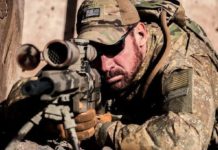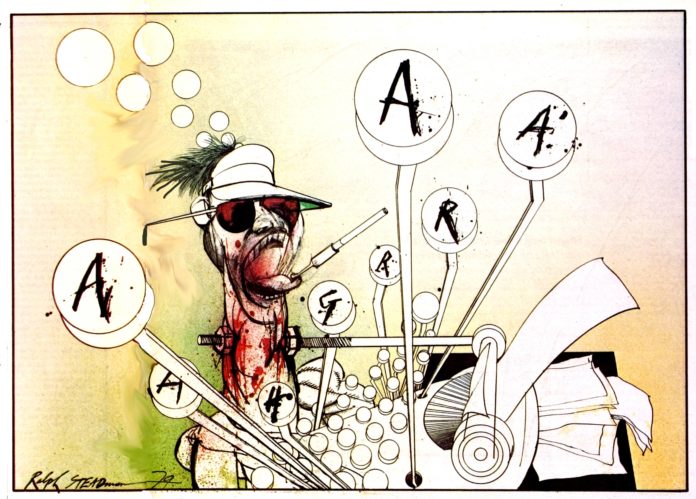
It was on a cold day in February of 2005 when we got the news—Hunter S. Thompson was dead, done in by an apparent, self-inflicted gunshot wound to the head. Although he was most likely loved and hated in equal measure, it was none-the-less a shock (though for many, not a surprise) that resounded through the nation, perhaps felt most by those in the journalism-world—we lost a legend that day.
And so it was, after thumbing through various reports covering the “war on terror,” that Thompson’s words came back to me with an eerie sense of foreboding:
“The towers are gone now, reduced to bloody rubble, along with all hopes for Peace in Our Time, in the United States or any other country. Make no mistake about it: We are At War now – with somebody – and we will stay At War with that mysterious Enemy for the rest of our lives.”
These words were written on September 12th, 2001—the day after 9/11. It took many of us months, if not years, to realize the full implications of the events that transpired on that fateful day, as well as the inevitable outcome, yet this eccentric, and in later years, somewhat reclusive journalist was able to immediately see through the veil that had been meticulously placed over the public’s eyes, and had in fact warned that Bush was not to be trusted well before the illegal War in Iraq. So who was this man, how did he come to possess such intuition, and what can we learn from him?
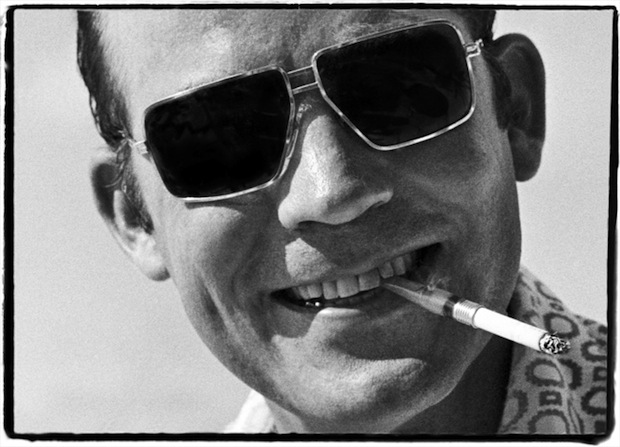
Thompson—the drug-consuming, Nixon-loathing, renegade “Gonzo” writer—was the envy of many journalists, a focus of contempt for others, and on a rare intimate note, this Anon’s personal idol. Often referred to as the “most accurate, least factual,” he incorporated satire, dark humor, and parody in a way other writers neither had the courage nor talent to mimic.
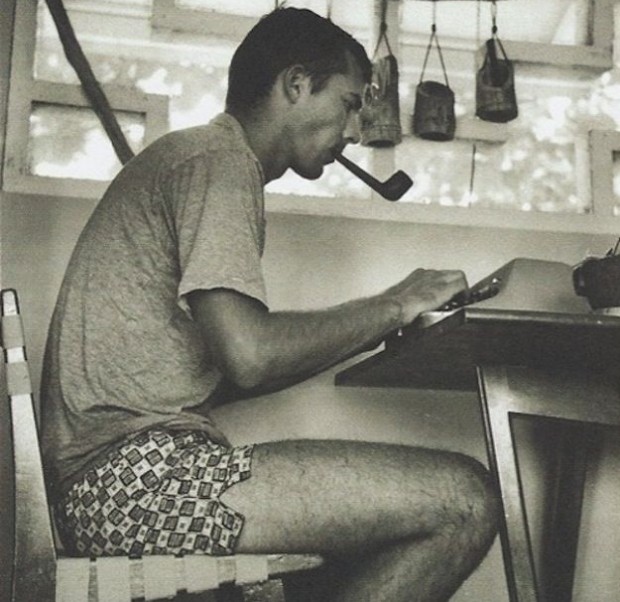
He had a tendency to focus on the persona telling the story rather than the events on which he was reporting, which allowed him to say things no one else dared to, in an effort to prove whatever point he was trying to make. Take, for example, Thompson’s Fear and Loathing: On the Campaign Trail 72’ articles—and later book—written for Rolling Stone in which he conducted the Muskie/Ibogaine prank to test the gullibility of the media.
Thompson claimed in one of his reports that presidential election runner, Edmund Muskie, was addicted to a naturally occurring psychoactive substance found in plants called Ibogaine. The media believed the story, to Thompson’s amusement, and it spread like wildfire:
“…In retrospect, however, it is easy to see why Muskie fell apart on that caboose platform at the Miami train station. It is entirely conceivable, given the known effects of Ibogaine, that Muskie’s brain was almost paralyzed by hallucinations at the time, that he looked out at the crowd and saw Gila monsters instead of people, that his mind snapped completely when he felt something large and apparently vicious clawing at his leg.” – Hunter S. Thompson
As a side note, Rolling Stone knew the claim was false, but found it amusing and knew it was too ridiculous to result in a prosecution.
In other news: Jeb Bush Addicted to Asian Porn, Brother Blames Al Qaeda
Thompson got his start in writing while serving in the Air Force, however he was honorably discharged in June of 1958. According to Col. William S. Evans, chief of information services, “In summary, this airman, although talented, will not be guided by policy. Sometimes his rebel and superior attitude seems to rub off on other airmen staff members,” (Paul, 2004, p. 23).
After his time in the military, Thompson traveled extensively (sometimes hitchhiking), and worked various jobs that mostly involved writing or journalism, a few of which he was fired from for “insubordination,” (Hunter, 1998, p. 139). By 1965, Thompson found himself in San Francisco, and was immediately immersed in the 1960’s counterculture.
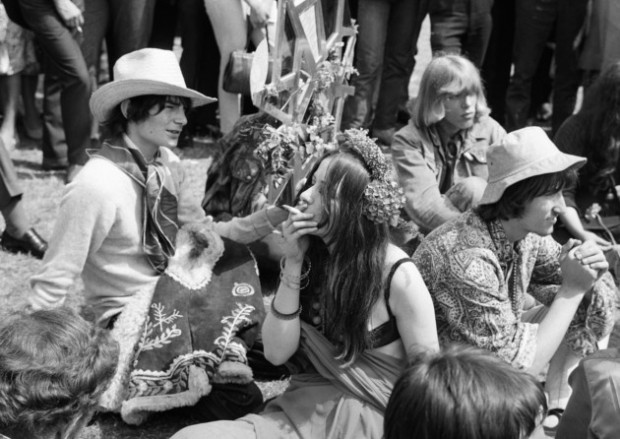
It was during this time that Thompson spent a year with the Hells Angels, living with them, and experiencing their lives. The arrangement ended in conflict, however, when the biker gang decided it was entitled to a cut of Thompson’s book profits. After an incident in which Thompson attempted to stop a biker who was beating his wife and dog, the violence was turned towards Thompson himself, and he never returned to the Hells Angels.
Thompson’s experiences gave him unique, firsthand insight into the politics and social issues of our nation. He was a devoted patriot who was able to see the ugliness in the world, and he reflected it in his writing.
“The true voice of Thompson is revealed to be that of American moralist … one who often makes himself ugly to expose the ugliness he sees around him.” – Hari Kunzru
It is easy to see how he became disillusioned with the 1960’s counterculture after his experience with the Hells Angels, and his time in San Francisco. He embraced the New Left ideals for social, economic, and political change, however he recognized that the “hippies,” being caught up in the new drug culture, started to lack the political convictions of the New Lefts.
Thompson drank extensively and did drugs until the day he died, but he never became so caught up in the lifestyle that he relinquished his morals, values, and ideas for another fix. This was an issue that Thompson addressed often in later years, and examined extensively in his book Fear and Loathing in Las Vegas: A Savage Journey to the Heart of the American Dream with his friend, Oscar Zeta Acosta (AKA Dr. Gonzo).
The Death of the American Dream
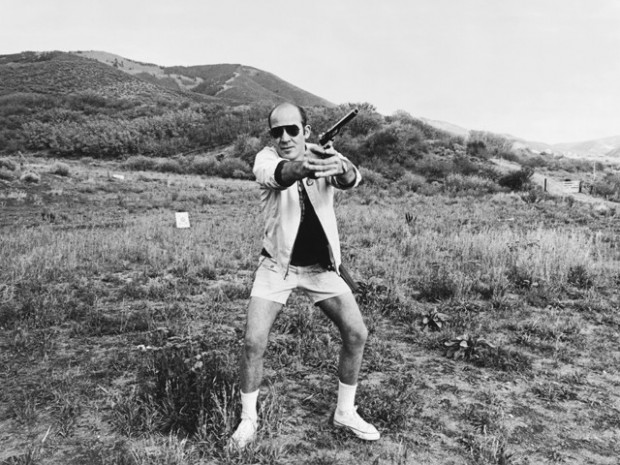
San Francisco in the middle 60s was a very special time and place to be a part of. But no explanation, no mix of words, or music, or memories can touch that sense of knowing that you were there and alive in that corner of time in the world, whatever it meant.
It was madness in any direction. At any hour, you could strike sparks anywhere. There was a fantastic universal sense that whatever we were doing was right, that we were winning, and that, I think, was the handle—that sense of inevitable victory over the forces of old and evil.
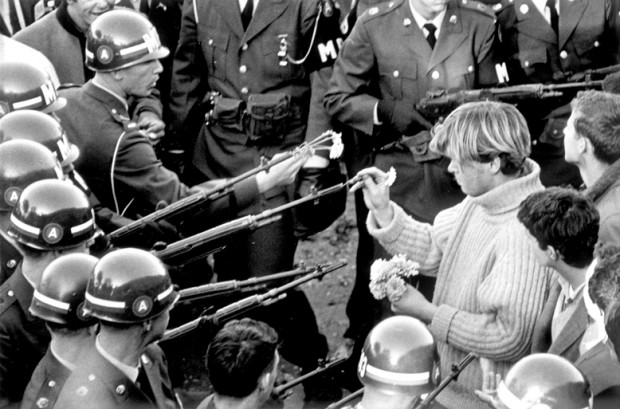
Not in any mean or military sense, we didn’t need that. Our energy would simply prevail. We had all the momentum. We were riding the crest of a high and beautiful wave.
So now, less than five years later, you can go up on a steep hill in Las Vegas and look west, and with the right kind of eyes, you can almost see the high water mark—that place where the wave finally broke, and rolled back.
– Hunter S. Thompson
By 1974, after a trip to Africa to cover “The Rumble in the Jungle,” Thompson’s journalism work started to decline. He began to lose that Gonzo-edge, as those close to him put it. There were plenty of factors that contributed to this, including his headlong tumble into fame which, according to Thompson, effected his ability to report properly—everyone knew his face and name, and his fans expected a certain persona.
While he did produce various works over the years, some say it wasn’t until his September 12th, 2001 report on 9/11 that he began to show that old Gonzo flare, once again stating that which almost no one else had either the wit to figure out, or the courage to say:
“It will be a Religious War, a sort of Christian Jihad, fueled by religious hatred and led by merciless fanatics on both sides. It will be guerilla warfare on a global scale, with no front lines and no identifiable enemy. Osama bin Laden may be a primitive ‘figurehead’—or even dead, for all we know—but whoever put those All-American jet planes loaded with All-American fuel into the Twin Towers and Pentagon did it with chilling precision and accuracy. The second one was a dead-on bullseye. Straight into the middle of the skyscraper.”
Many who were close to him confided that he often spoke of suicide, yet it has been reported through various sources that Thompson was working on a story about the World Trade Center collapse before his death, and that he had been warned he would be “suicided” if he published the article, leaving some to believe he was murdered. Whether or not there is truth behind this accusation, we will most likely never know, however as his death fits the all too common pattern of so-called suicides amongst whistleblowers and outspoken journalists, it is worth mentioning in this report. One thing is certain: We lost yet another leader in the civil rights movement at a time our generation could have used his influence the most.
February 20th marks the anniversary of Thompson’s passing, and as we look back on the life of this gonzo-legend, we’re once again reminded that aside from being a political prophet who changed the rules of journalism, he was a true patriotic American, and one of the few who had the courage to expose the ugliness and corruption that has tainted the American dream. What better way to honor his memory than to follow in his footsteps.
In loving memory of the Dr. of Gonzo journalism:
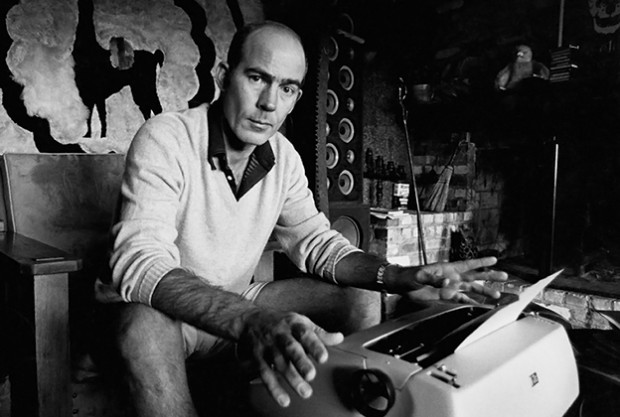
This Article (The Ominous Echoes of a Gonzo Legend) is a free and open source. You have permission to republish this article under a Creative Commons license with attribution to the author and AnonHQ.com.
Sources:
Perry, Paul (2004). Fear and Loathing: The Strange and Terrible Saga of Hunter S. Thompson (2nd ed.). Da Capo Press.
Thompson, Hunter (1998). Douglas Brinkley, ed. The Proud Highway: Saga of a Desperate Southern Gentleman (1st ed.). Ballantine Books.




